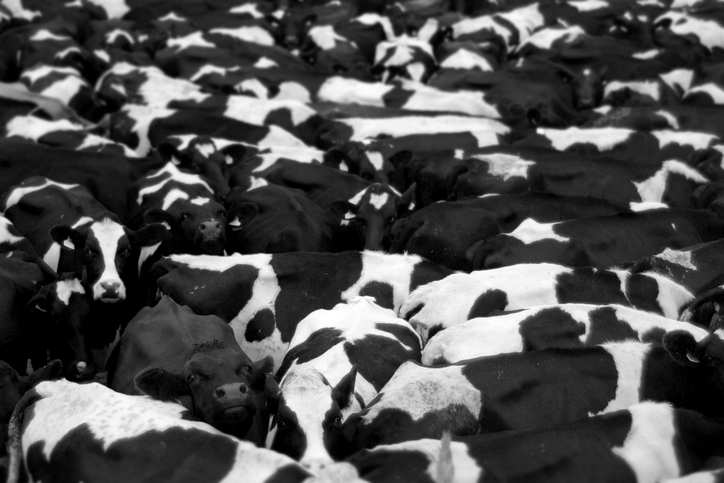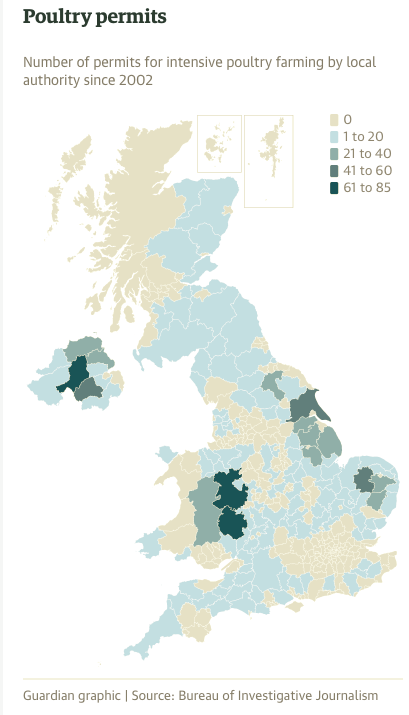
Vegetarianism and veganism is on the rise in the UK. Visit any major city and you will discover that in the the last five years, its offering of vegetarian restaurants will have at least doubled, if not tripled. Supermarkets are reacting to an increase in vegetarianism also, with Tesco and Sainsbury’s reacting to the growing popularity of veganism in the country with their own dairy free ranges of cheese and spreads. Brands such as Oh Sheese and Violife have risen by over 100 per cent in the last 12 months.
On the surface, it looks as though the UK is a country that is moving away from a mass meat eating culture and towards a more balanced and plant inclusive lifestyle. Look away from the consumer side of food and towards the farming industry however, and its a very different story. Far from moving away from producing meat on a large scale, the UK is silently heading towards a new wave of battery farming, with nearly every county in England holding at least one industrial-scale livestock farm, with close to 800 US-style mega farms operating across the country.
Mega farms are defined by the amount of livestock they can hold. To be defined as ‘mega’, a farm must hold at least 125,000 broiler chickens, 82,000 laying hens, 2,500 pigs, 700 dairy cows or 1,000 beef cows. While those numbers might seem ludicrously large, many UK are extending to meet these numbers. Herefordshire’s farms alone now hold over 16 million animals, meaning that the county now has 88 times factory farmed animals than it does humans. Shropshire and Norfolk follow closely, with more than 15 million and 12 million animals respectively







